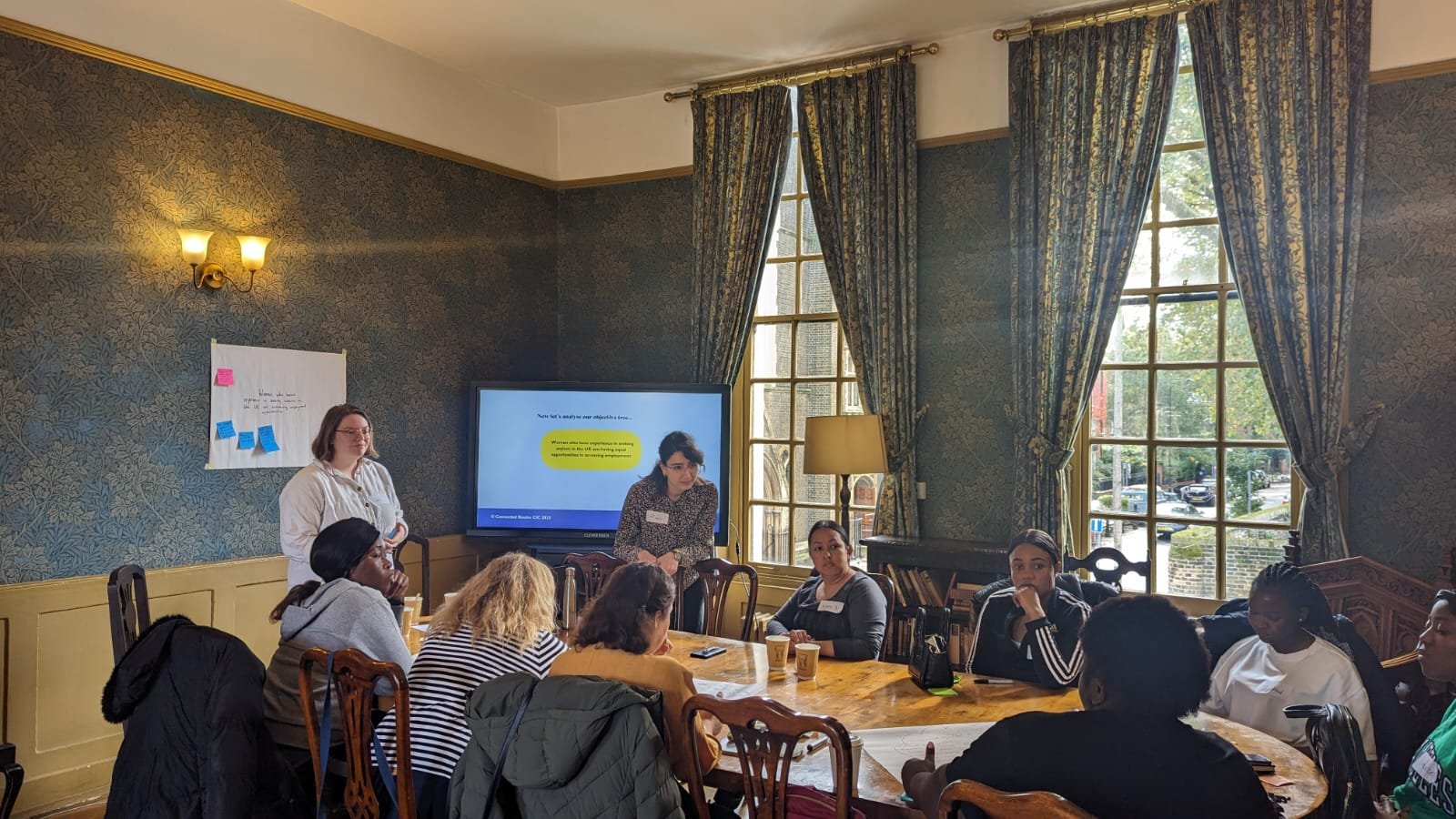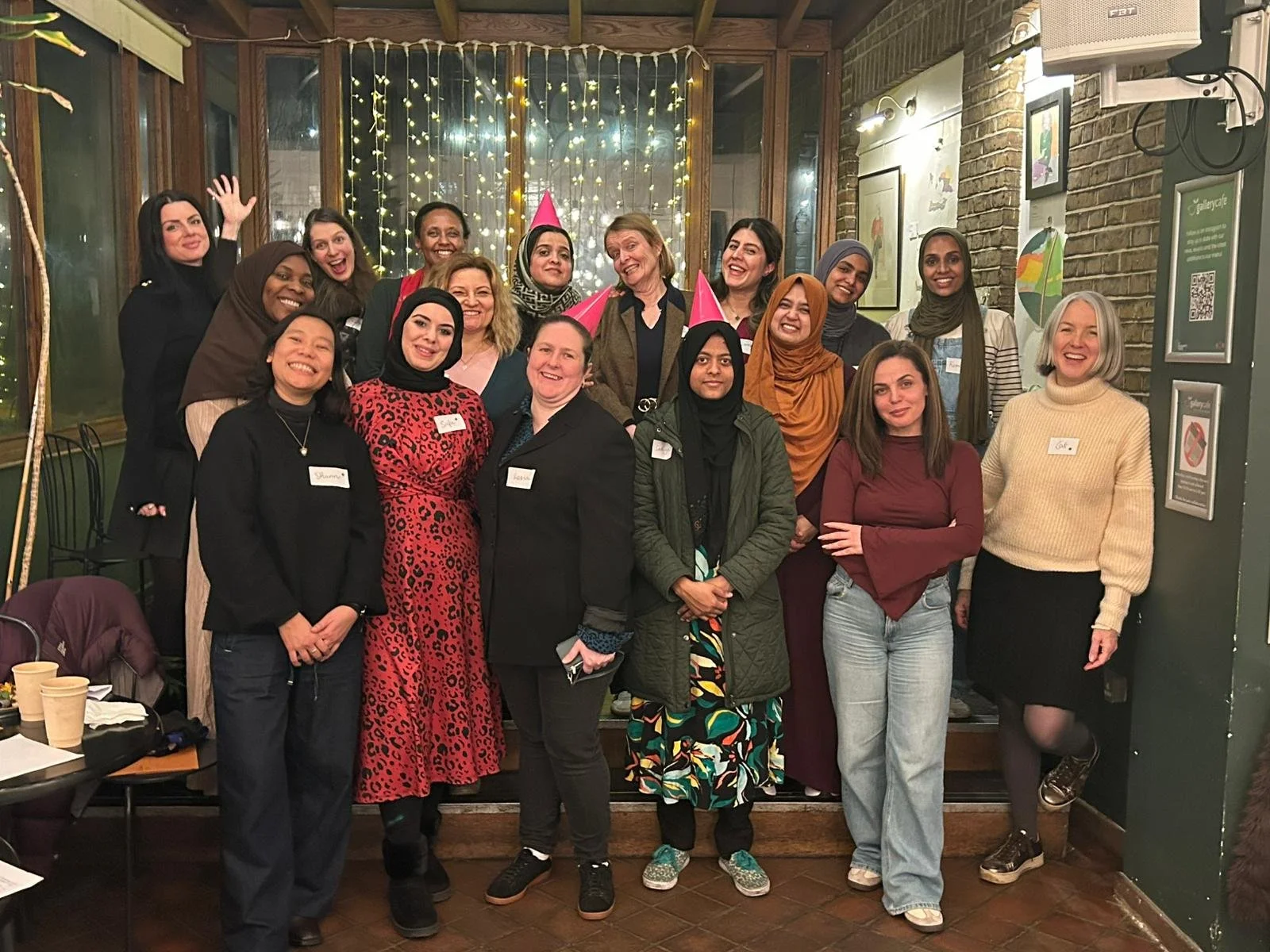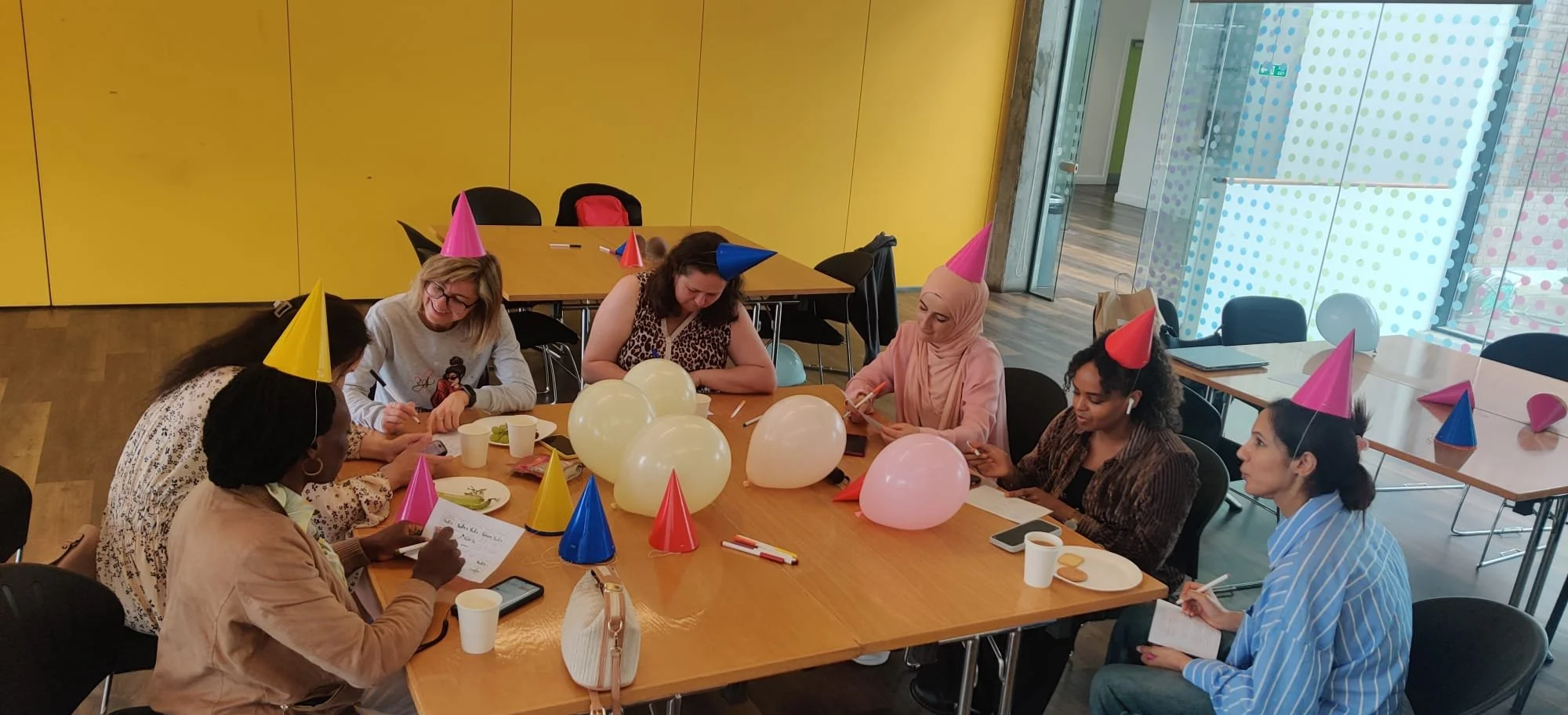Routes to employment: first findings from our research project
Roula Kheder is Routes’ Project Development Manager for our Routes to Employment project, that started in May 2023. With funding from Propel, we were able to carry out research into the barriers and opportunities that are present for women from refugee and asylum-seeking backgrounds in accessing employment in the UK. In this blog, Roula writes about the importance of this topic and shares the first key findings.
Waiting for years to get the result for an asylum claim while having no access to education, support or employment, is creating huge barriers for women to build a meaningful life in the UK. This experience of being out of work often results in a long gap of unemployment on people’s CVs (or LinkedIn!), and might also lead to additional mental health needs due to the lack of access to integration activities. Other barriers women are facing in accessing employment include language issues and lack of practice in professional English, lack of confidence and isolation. All these factors are denying refugees and asylum seeking women the opportunity to swiftly start the new lives they have dreamt of when seeking a safe place to resettle.
The Routes to Employment project started in May 2023 aiming to gain a better understanding of the unemployment problem for refugee women. For example, previous research has found that women from refugee backgrounds have consistently low levels of labour market participation. By delivering activities and workshops in collaboration with women with lived experience of seeking asylum in the UK, the main goal of our project is to identify the barriers and challenges that women are facing when seeking employment.
Picture: facilitators and participants of a Routes to Employment Problem Tree Analysis workshop.
The project activities included an Employment Assessment Survey which was designed for women with lived experience in seeking asylum to assess their current employment situation. We surveyed 93 women from 36 different nationalities. In this group, 37.6% of participants are asylum-seekers, whilst 38,7% have refugee status and the last group of participants have other backgrounds of seeking safety in the UK.
Key findings of the survey: 65% of respondents are unemployed. Moreover, of the people who are employed, 75% of the respondents said they are not satisfied with their current job. This is either because they feel they don’t have any other options, or because it is not exactly the job they wanted.
After the initial Employment Assessment Survey, we conducted Problem Tree Analysis Workshops with women from refugee and asylum-seeking backgrounds. The goal of these workshops was to identify the main causes of the unemployment amongst refugee women and collaboratively discussing solutions which will address these causes.
The Problem Tree Workshop findings were incredibly useful in understanding the core of the problem, and bringing depth and nuance to the numbers. It was also helpful in designing our future Routes Employment Programme, which will innovate new routes towards meaningful employment.
- Roula Kheder, Project Development Manager of the Routes’ to Employment
The key focus of the workshops was identifying the causes of the problem, such as the hostile UK asylum system, mental health difficulties, lack of employment skills and employers having no awareness of the asylum system. Most importantly was the cause of Lack of Support where participants identified three main areas of support: inefficient ESOL (provision of English for Speakers of Other Languages), poor support from Job Centres; and lack of childcare. Based on these conversations, we brainstormed solutions with the participants on improving the current situation.
Picture: participants sharing reflections on accessing the UK labour market.
At the moment Routes team is designing a new Employment Programme, which will respond to the identified barriers and which we are very excited about! The programme is being co-designed with stakeholders such as partner organisations, businesses and women with lived experience to shape the best support possible and to ease the access to employment for our programme's participants.
Thoughts, ideas and feedback that will help us shape the Employment Programme are very welcome. If you are interested to learn more about how you can partner and support this programme, we would like to hear from you on roula@routescollective.com





